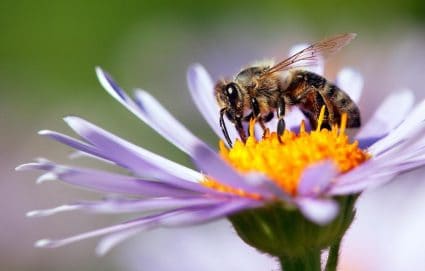
Birdhouses are a delightful addition to any garden, offering a safe haven for our feathered friends. However, they can sometimes attract unwanted guests like wasps. In this comprehensive guide, we will explore various methods to keep wasps out of birdhouses, ensuring a safe environment for birds.
To keep wasps out of birdhouses, use a dry bar of soap on the inside of the birdhouse roof to create a slippery surface that deters wasps. Install smaller entrances to keep out larger wasps and consider using metal guards around openings. Place birdhouses away from areas frequented by wasps and use natural repellents such as a mixture of clove, geranium, and lemongrass essential oils. Plant wasp-repellent plants like spearmint, thyme, eucalyptus, wormwood, and citronella near your birdhouses. Regularly inspect and clean birdhouses to detect and remove any wasp nests.
Why Wasps Are Attracted to Birdhouses
Before we dive into the solutions, it’s essential to understand why wasps are attracted to birdhouses. Wasps typically seek out quiet, undisturbed locations to build their nests. Birdhouses, particularly those that are currently unoccupied, may appear to be ideal spots for wasps to establish their nests.
Signs of a Wasp Infestation
Identifying a wasp infestation early can help prevent it from becoming a significant problem. Some signs to look out for include increased wasp activity around the birdhouse, visible nest structures, and buzzing noises coming from the birdhouse.
How to Prevent Wasps from Nesting in Birdhouses
There are several effective methods to deter wasps from nesting in birdhouses. Here are some of the most effective ones:
Use Soap
Wasps do not like soap. Rub a dry bar of soap on the inside of the birdhouse roof or the top of the nesting box. This creates a slippery surface that makes it difficult for wasps to attach their nests.
Install Smaller Entrances
Reduce the size of entrance holes to 1-1/8 inch or less to keep out larger wasps. Consider installing metal guards around openings to further deter insects from entering.
Choose the Right Location
Place birdhouses away from areas frequented by wasps. This can reduce the chances of wasps finding and infesting the birdhouse.
Use Natural Repellents
Blend together a few drops of clove, geranium, and lemongrass essential oils, and mix this with dish soap and water. Spray this solution around the birdhouse to naturally repel wasps.
Plant Wasp-repellent Plants
Plant varieties like spearmint, thyme, eucalyptus, wormwood, and citronella near your birdhouses to deter wasps.
Regular Maintenance and Inspection
Regularly checking and cleaning birdhouses can help detect and remove wasp nests before they become a significant problem. Clean the birdhouse at least once a year, preferably twice, ensuring there are no eggs or chicks inside before cleaning.
How to Safely Remove Wasps
If wasps have already nested in a birdhouse, it’s best to let them be and not take any active measures to exterminate them. Instead, wait to clean them out in the fall when the weather is cooler and their activity has halted.
In conclusion, while wasps can be a nuisance, there are several effective, natural methods to keep them out of birdhouses. By implementing these strategies, you can provide a safe and welcoming environment for birds to nest.
Frequently Asked Questions
What other essential oils can I use to repel wasps?
In addition to clove, geranium, and lemongrass, you can also use peppermint, citronella, and eucalyptus essential oils. Wasps dislike the strong scent of these oils, making them effective natural repellents.
Can I use insecticides to get rid of wasps in birdhouses?
While insecticides can kill wasps, they can also be harmful to birds. It’s best to use natural methods to deter wasps from nesting in birdhouses to ensure the safety of the birds.
How often should I inspect the birdhouse for wasp activity?
Regular inspections, once every two weeks, should be enough to catch any early signs of wasp infestation. During the inspection, look out for signs like increased wasp activity, visible nests, or buzzing sounds.
What time of the year are wasps most active?
Wasps are most active during the warmer months, typically from early spring to late summer. This is when they are most likely to seek out spaces like birdhouses to build their nests.
Are there specific types of birdhouses that attract wasps?
Wasps are not particularly attracted to specific types of birdhouses. Rather, they are attracted to quiet, undisturbed locations. Therefore, any birdhouse that is not frequently visited by birds could potentially attract wasps.









